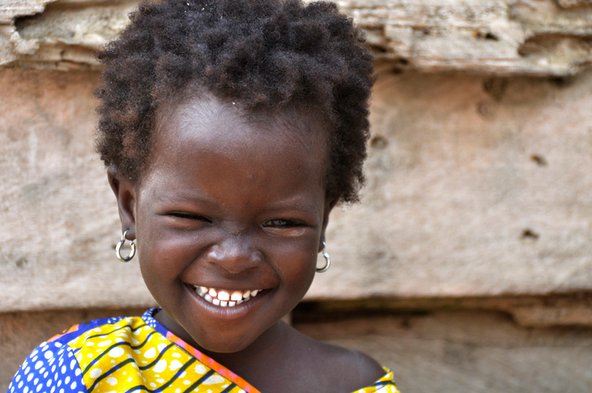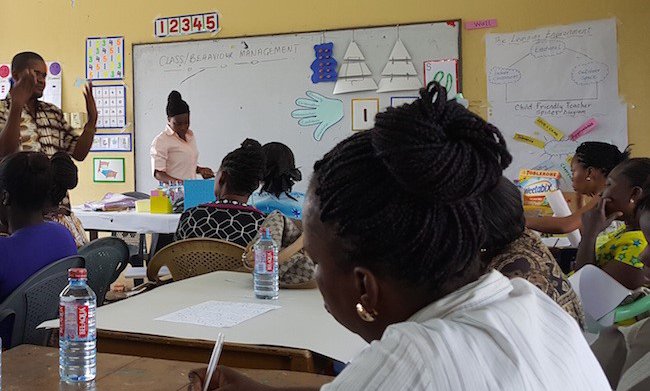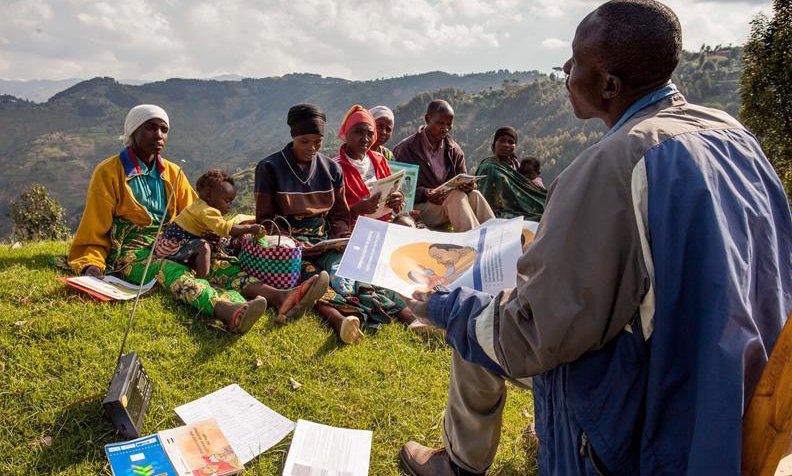Fending off "fadeout": How do we sustain the gains of early childhood education?
by Dr Sharon Wolf
21 Sep 2018

If you have been paying attention lately to what education experts are saying, you have undoubtedly heard the loud calls for expanding children’s access to preschool, also referred to as early childhood education (ECE). And rightfully so.
The evidence is clear: Children who attend ECE programmes are better prepared for school than those who don’t. Expanding children’s access to high-quality ECE is an evidence-based approach to supporting children’s development and improving schooling outcomes. If programmes are of high enough quality, they can even have lasting impacts into adulthood.
There is still a lot of work to be done globally to ensure all children can access high-quality ECE programmes, especially in sub-Saharan Africa, where enrolment rates in ECE are as low as one in five children. One target indicator in the Sustainable Development Goals – a set of guiding global objectives ratified by the United Nations – aims to ensure that every child receives at least one year of high-quality preschool education. This is an important milestone. But we can’t stop there. To realise the value of ECE, we must continue investing in children and schools.
“Fadeout” of impact
Researchers and policy-makers generally talk about ECE as if it is an inoculation – invest for one year and see permanent gains. While there is some evidence that high-quality ECE alone can have long-lasting impacts, most rigorous evaluations find that after a year or two, “fadeout” or “convergence” occurs. What this means is that children who were and were not provided access to preschool end up with very similar outcomes despite earlier differences found between the groups.
We have some ideas about why this happens. For example, often the kindergarten curriculum simply repeats what children learned in preschool the previous year, so everyone catches up. But while “convergence” can occur for academic outcomes, the story is different for behavioural outcomes. Two recent studies suggest children’s later psychosocial skills end up worse if they attended preschool (see The persistence of preschool effects from early childhood through adolescence and Effects of the Tennessee Prekindergarten Programme on children’s achievement and behavior through third grade). In short, there is a lot we still don’t know.
Part of the problem is many studies of ECE programmes don’t follow children after the school year, and even fewer studies measure the type of educational environments children enter after they leave preschool. This is particularly true of studies in low- and middle-income countries. The gaping hole in the research severely limits our understanding of ECE programmes, especially because the types of schools children attend after preschool can play a role in whether positive gains from ECE persist.
One study found that children who benefitted from an intervention that improved the quality of preschool for poor children in the United States had sustained gains into early elementary school only if children entered a high-quality school. Impacts faded out for children who went to a low-quality school. This suggests the quality of the school that children attend after preschool matters. And, in sub-Saharan Africa, the quality of many primary schools is low.
What does this mean for the recent expansion in ECE enrolment across sub-Saharan Africa? Can we realistically expect children will be able to maintain the gains from ECE in learning and social and behavioural development if they subsequently spend six years in a low-quality school? How can we align primary school curricula and quality improvement in ways that build on the gains children make from ECE? We must ask and research these questions if ECE is going to be the impactful intervention we believe it can be.
Researching early childhood education gains beyond preschool
In our ongoing study funded by the British Academy, we are asking some of these questions. We are working in Ghana, a country that added two years of pre-primary school to its free, universal basic education system more than a decade ago. Ghana has some of the highest ECE enrolment rates on the continent at close to 75% of preschool-age children, but the quality is generally low, and little is known about how children’s ECE experiences link to their later primary school outcomes.
We are now building on a study of approximately 3,800 children who participated in the Quality Preschool for Ghana project. I’ve written elsewhere about the earlier findings from this study.
To summarise, the initial study focused on developing and evaluating a teacher training and coaching programme to improve the quality of ECE. We found positive results – teaching practices and classroom quality improved, and so did children’s learning and social-emotional outcomes. One year later, when children moved on to their next school year, children who were in the teacher training treatment group were still outperforming their peers in social-emotional skills.
The children from this study are now in their first and second year of primary school, and we have tracked them again for a third year. In addition to collecting data on the children themselves, we are collecting data on their school and classroom environments, their teachers, and their home learning environments to examine if and how certain school, classroom, and home settings are important to supporting sustained gains.
We hope our findings will help guide the development of interventions and education policies that can turn the gains from high-quality ECE programmes into improved learning and school attainment for years to come.
Ultimately, we hope to catalyse a larger scale research and policy agenda focused on how to align and maximise investments to build on the potential of early childhood education.
Dr Sharon Wolf is an Assistant Professor at the University of Pennsylvania’s Graduate School of Education and is the principal investigator of Assessing Sustained Impacts of the Quality Preschool for Ghana Teacher Training Intervention on Children’s Early Primary Grade Outcomes, part of the British Academy's Early Childhood Development Programme.

